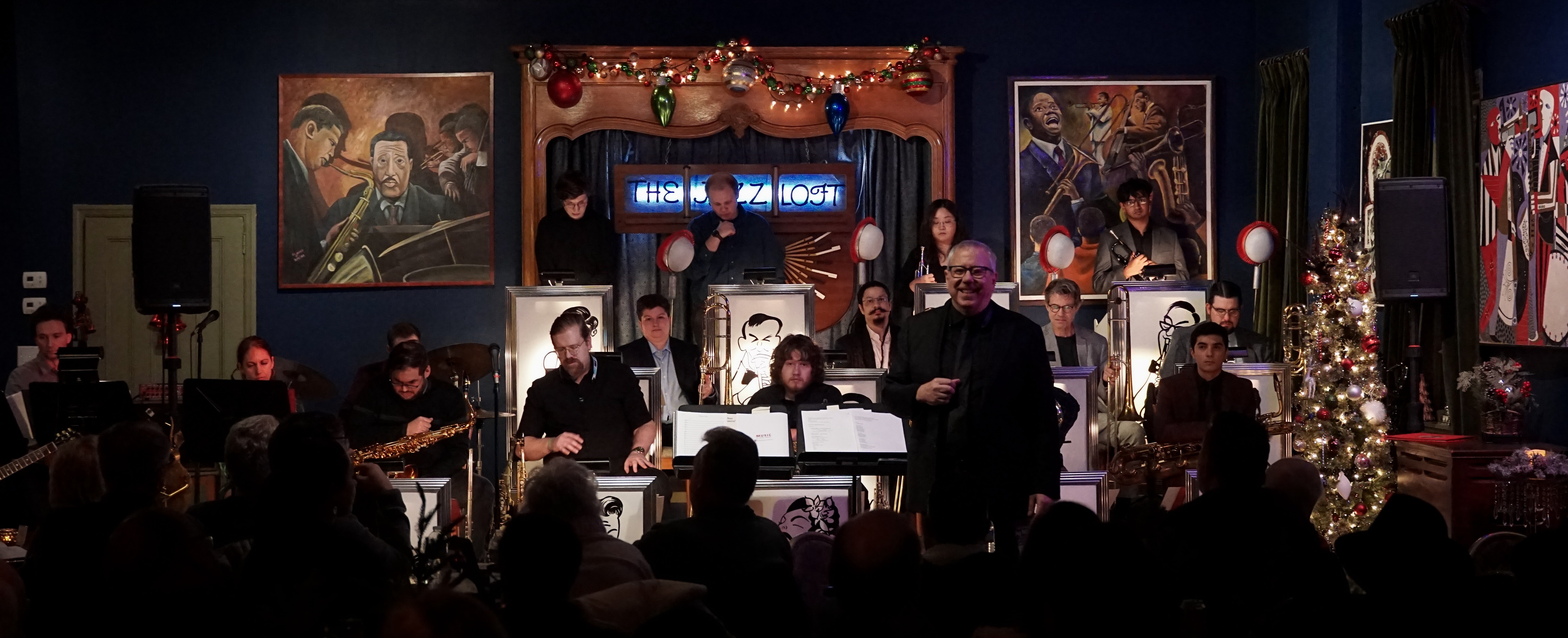Jazz Ensembles
Ray Anderson, Toll Professor, Director
ray.anderson@stonybrook.edu
Thomas Manuel, Endowed Artist in Residence, Director
thomas.manuel@stonybrook.edu
About
The Stony Brook Jazz program is led by Ray Anderson, chosen five times as “Best Trombonist”
in Downbeat Magazine’s Critics Poll. Ray conducts The SBU Jazz Orchestra, Stony Brook’s
big band and supervises the small ensembles along with talented graduate assistants.
Thomas Manuel, Director of the Jazz Loft in Stony Brook, performs in The SBU Jazz
Orchestra and assists in the administration of the jazz program.
The SBU Jazz Orchestra plays a wide variety of big band music, covering the entire
scope of jazz history and reaching into the future. Classic compositions of Duke Ellington,
Count Basie, Fletcher Henderson, Thad Jones and others are featured next to more modern
works, including compositions by Stony Brook students and Ray Anderson. Undergraduates,
graduates, and musicians from the local community, often including Stony Brook faculty
from different departments, play together. The band is known for its precision and
blend, as well as individual creativity. In that regard, the band is a living, evolving
entity, exploring the essential and lively tension between composition and improvisation.

The Jazz Combos include everyone from beginning undergraduates to virtuoso jazz players,
with every level in between. The advanced groups play highly original compositions
and arrangements by members of the group, the less advanced focus on standards of
the jazz repertoire, but always with a focus on originality. As with the big band,
the focus is on both the group's sound as a band, i.e. how we play together, and the
individual's creativity, i.e. how we tell our own story.
SBU Jazz Orchestra - MUS 264/568
Monday Evenings, 7PM-9:30PM
Jazz Combos - MUS 267 or MUS 289 (Tuesday & Wednesday evenings, other times as needed)
Beginning Improvisation - MUS 189 (To Be Announced)
JAZZ AUDITIONS
Everyone is welcome to register for the classes but you must audition to participate.
Auditions will be held on Wednesday August 28th and Thursday August 29th. Students
should be prepared to play a Jazz standard of their choice, improvise on a blues head,
as well as sight read.
VISIT HERE TO SIGN UP FOR AN AUDITION
SMALL JAZZ ENSEMBLES
As much as possible, this course will be run just like a rehearsal for a band performance.
We will be covering a wide range of music with an emphasis on the interplay between
the group and the individual. Knowledge of the music’s history and an understanding
of the African-American culture that gave birth to Jazz is essential to understanding
the music. Rehearsals will include listening, discussion, as well a variety of exercises
to learn improvisation and ensemble playing techniques.
SBU JAZZ ORCHESTRA
The SBU Jazz Orchestra performs a wide range of music from and in the Jazz Orchestra
tradition. We will focus on developing a rich blend and sound as an ensemble, as
well as engaging our individual creativity and expression inside of the group. In
this course you will learn to play jazz by practicing daily on your instrument and
playing in class. Harmony, melody, phrasing, rhythm and the study of the African-American
roots of jazz will be included. We will be exploring the essential jazz tension between
composition and improvisation.
The Jazz Orchestra explores literature from Ellington, Basie, Kenton, Thad Jones as well as newly commissioned/composed works. Each year select students from the Jazz Orchestra have the opportunity to be a part of an annual large scale project at The Staller Center. Guest artists also will work with the Jazz Orchestra throughout the semester. There are weekly rotating sectionals as well as a concluding concert at the end of each semester. Other performances are TBD.
MUS 189 BEGINNING JAZZ IMPROVISATION
In this course you will learn to play jazz by practicing daily on your instrument
and playing in class. Harmony, melody, phrasing, rhythm and the study of the African-American
roots of jazz will be included.
